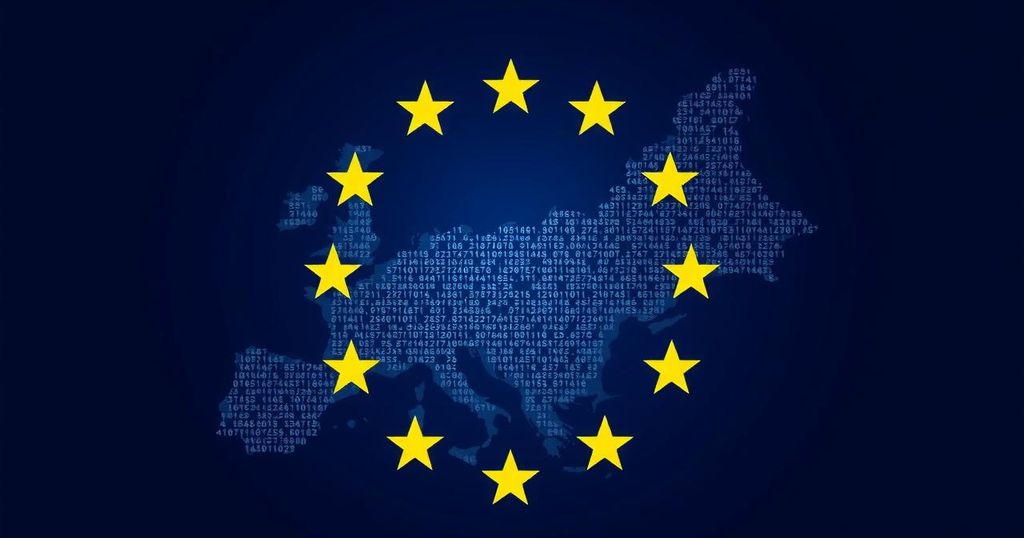EU Directs TikTok to Preserve Data Amid Romanian Election Controversy

The European Union has ordered TikTok to preserve data related to the Romanian presidential election due to allegations of a foreign-backed online campaign supporting candidate Calin Georgescu. This step highlights increased scrutiny of digital platforms’ roles in influencing electoral integrity. The EU is employing its Digital Services Act to regulate big online services and manage risks associated with misinformation.
The European Union has mandated TikTok to preserve data pertinent to the Romanian presidential election amid allegations of foreign interference by Moscow. This order comes after Romania’s top defense authority released declassified intelligence indicating that a vast network of social media accounts promoted Calin Georgescu, a far-right candidate who unexpectedly led in the polls. Notably, the European Commission’s action underlines its growing scrutiny of the platform’s influence on electoral integrity in light of the systemic risks associated with its services.
As the election turmoil unfolds, the Commission aims to ensure accountability among large online platforms like TikTok, especially given claims that fake accounts were used strategically to sway public opinion. TikTok has acknowledged its cooperation with the Commission and aims to clarify any misinformation regarding its election integrity practices. The Commission’s move to preserve records suggests a serious approach toward addressing concerns about electoral manipulation through digital channels.
The case underscores the importance of regulating digital services in the context of elections. TikTok is undergoing heightened examination due to the implications its platforms may have on civic discourse and electoral processes. The Commission’s actions reflect broader efforts to regulate online content and safeguard democracy in Europe, particularly in the wake of significant political events. The situation is intensifying as the presidential election enters its final stages, with Georgescu set to contend against pro-European Union reformist Elena Lasconi.
The European Union has increasingly focused on the potential risks posed by social media platforms during electoral processes, particularly in light of rising concerns over foreign interference and disinformation campaigns. The situation in Romania highlights the intersection of digital media and politics, especially as allegations surface regarding the involvement of external entities in domestic elections. The European Commission has established regulatory frameworks, such as the Digital Services Act, to scrutinize the operations of large online platforms like TikTok, promoting accountability and safeguarding democratic processes.
In conclusion, the European Union’s directive to TikTok to retain pertinent electoral data illustrates a decisive step in addressing the challenges posed by digital platforms during elections. The unfolding scenario in Romania serves as a critical case study of the need for regulatory oversight to ensure electoral integrity. As the Commission continues to investigate the alleged manipulation of public opinion via social media platforms, it remains essential to uphold the principles of democracy and transparency in electoral processes across the European Union.
Original Source: apnews.com








